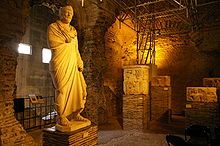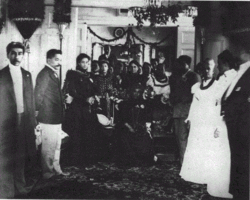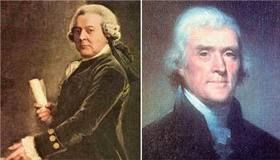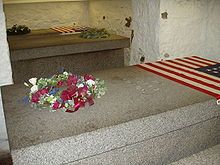Cross posted from The Stars Hollow Gazette
The ouster of Egyptian President Mohammed Morsi has became unceasingly violent over the weekend as his supporters, urged by the Muslim Brotherhood, continued to take to the streets. The violence left approximately 51 dead as the Islamists attack the Republican Guard building where Morsi was initially held. There are conflicting reports of how the violence started:
Morsi’s backers said the troops attacked their encampment without provocation just after dawn prayers. The military said it came under a heavy assault first by gunmen who killed an army officer and two policemen. More than 400 were wounded in the mayhem. [..]
The Morsi supporters had been camped out for days at the site in tents around a mosque near the Republican Guard complex, where Morsi was initially held but was later moved to an undisclosed Defense Ministry facility.
Spokesmen for the military and police gave a nationally televised press conference to give their version of the morning’s bloodshed.
Army Col. Ahmed Mohammed Ali said police and troops guarding the Republican Guard complex came under “heavy gunfire” at around 4 a.m. and attackers on rooftops opened fire with guns and molotov cocktails. Along with the soldier and two policemen, 42 in the security forces were wounded, eight critically, he said.
He underlined that the troops had the right to defend the installation and that the protest “was no longer peaceful.” He pointed out that suspected Islamists have carried out coordinated armed attacks on several military facilities in recent days in the Sinai Peninsula.
One witness, university student Mirna el-Helbawi, also said gunmen loyal to Morsi opened fire first, including from the roof of a nearby mosque. El-Helbawi, 21, lives in an apartment overlooking the scene.
Supporters of Morsi, however, said the security forces fired on hundreds of protesters, including women and children, at the sit-in encampment as they performed early morning prayers.
The selection of a Prime Minister has been put on hold by interim President Adly Mansour after the country’s second largest Islamist group, the Nour party, objected to the appointment of former IAEA chief Mohamed Elbaradei, a pro reformist. After the deaths at the Republican Guard complex, Nour has withdrawn from all talks.
Democracy Now! correspondent Sharif Abdel Kouddous reported live from Cairo this morning on the “Egyptian descent into violence”.
Transcript can be read here
After Sharif’s report, Amy Good man hosted a discussion on what caused Morsi’s overthrow and what comes next for Egypt with Sharif and guests Michael Wahid Hanna, a senior fellow at The Century Foundation; and Shadi Hamid, director of research for the Brookings Doha Center and a fellow at the Saban Center for Middle East Policy at Brookings.
Transcript can be read here
Senator John McCain (R-AZ) has called for suspension of US foreign aid to Egypt after Morsi’s ouster, other senators and House representatives disagreed:
“Reluctantly, I believe that we have to suspend aid until such time as there is a new constitution and a free and fair election,” McCain said on CBS’s “Face The Nation.” [..]
Senate Foreign Relations Committee Chairman Robert Menendez (D-N.J.) said U.S. assistance should be used “as leverage” to press the military to pursue a quick transition to a civilian government. [..]
Sen. Bob Corker (R-Tenn.), the ranking Republican on the Foreign Relations Committee, cautioned against rushing into discussions about aid. [..]
Sen. Jack Reed (D-R.I.) said on the same program: “I think on a practical basis we have to look and ask a very simple question: Will cutting off aid accelerate or enhance the opportunities and the chances to have a truly Democratic government? I don’t think so.”
House Intelligence Committee Chairman Mike Rogers (R-Mich.) called the military in Egypt the “one stable factor there.” The military “should continue to be rewarded” for its stabilizing presence, Rogers said on CNN’s “State of the Union.”



 On this day in 1917, Arabian troops led by
On this day in 1917, Arabian troops led by  On this day in 1826,
On this day in 1826, 

